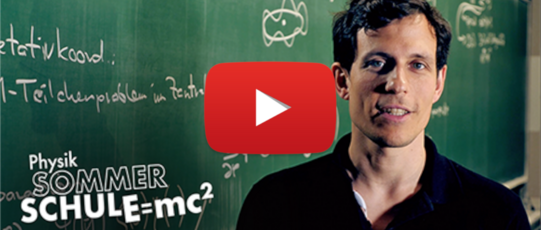Physics Minor (60 ECTS)
Programme Contents
The physics minor programme (60 ECTS credits) can be studied in Würzburg in any combination with a major programme (120 ECTS credits). The Bachelor's thesis is completed in the major subject and students receive a broad insight into experimental physics and theoretical physics in line with their chosen specialisation.
Learning Objectives
The aim of the programme is to provide students with basic knowledge in the fundamental sub-areas of physics and to introduce them to the methods of physical thinking and working, as well as to provide an understanding of the fundamental physical concepts and laws, sound methodological knowledge and the development of typical thought structures, so that they can work on physical problems in an interdisciplinary environment and present, evaluate and defend the results and consequences of their work
- Description of natural processes under precisely defined, reproducible conditions (experimental observation)
- Gaining knowledge by creating theoretical models for the quantitative description of observation using the language of mathematics
- Nature as a whole, from the description of the universe as a whole to the elementary building blocks from which all known matter is constructed
- from basic research to applied research on specific problems, which very often also originate from non-technical areas
The professional fields and employers essentially depend on the major subject studied.
Due to the broad insight into physics, these fields of activity are also open:
- Teaching at schools, colleges and universities
- Patents (law firms and patent offices)
- Management consultancies, financial service providers, insurance companies and banks
- Public service
| Module Groups | Abbreviation | ECTS Points |
|---|---|---|
| Mandatory Courses | 40 | |
| Classical Physics | 16 | |
| Classical Physics 1 (Mechanics) | 11-E-M | 8 |
| Classical Physics 2 (Heat and Electromagnetism) | 11-E-E | 8 |
| Theoretical Physics | 16 | |
| Theoretical Mechanics | 11-T-M | 8 |
| Quantum Mechanics | 11-T-Q | 8 |
| Laboratory Course Physics | 8 | |
| Laboratory Course Physics A (Minor Subject) | 11-P-BNA | 2 |
| Data and Error Analysis | 11-P-FR1 | 2 |
| Laboratory Course Physics B (Minor Subject) | 11-P-BNB | 4 |
| Module Groups | Abbreviation | ECTS Points |
|---|---|---|
| Electives Field | 20 | |
| Experimental Physics | ||
| Optics and Waves | 11-E-O | 8 |
| Atoms and Quanta | 11-E-A | 8 |
| Introduction to Solid State Physics | 11-E-F | 8 |
| Nuclear and Elementary Particle Physics | 11-E-T | 6 |
| Theoretical Physics | ||
| Statistical Physics | 11-T-S | 8 |
| Electrodynamics | 11-T-E | 8 |
| Applied Physics | ||
| Computational Physics | 11-CP | 6 |
| Electronic Circuits | 11-EL | 6 |
| Astrophysics | 11-AP | 6 |
| Laboratory and Measurement Technology | 11-LMT | 6 |
| Introduction to Nanoscience | 11-N-EIN | 7 |
| Seminar Experimental/Theoretical Physics | 11-HS | 5 |
| Mathematical Methods | ||
| MINT Preparatory Course Mathematical Methods of Physics | 11-P-VKM | 3 |
| Mathematical Methods of Physics | 11-M-MR | 6 |
| For further modules, please refer to the relevant degree Subject Description (SFB) |
The course of study shown (Download as pdf) is a recommendation resulting from the logical sequence of module topics.
You are free to organise your studies according to your own wishes, bring certain modules forward or take them later, e.g. after a semester abroad.










